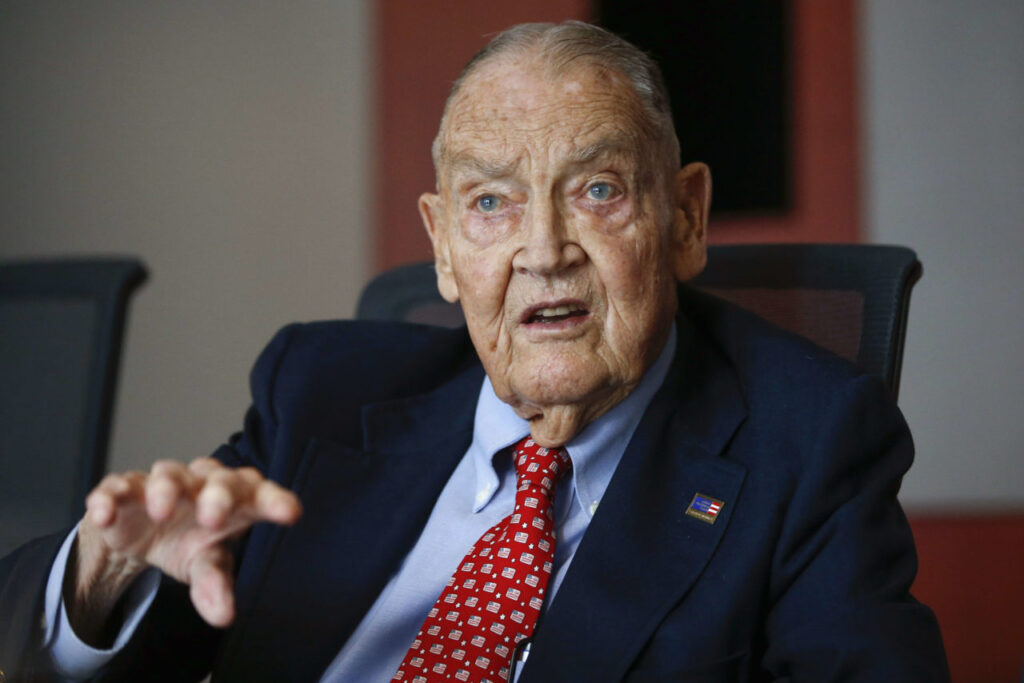Featured Thinking & Perspectives

Building on the themes from the 2006 conference, this proceedings of the 2008 conference explores what the modern science of life-cycle finance implies for households, businesses, and government with a focus on the retirement phase.
Tectonic Shifts in Wealth Management
On August 28 2020, the Chicago Booth Alumni Club of Singapore, Hong Kong and Zurich hosted a joint webinar inviting alumnus: Ivan Chelebiev (’16), Christina Lee (’13), and Oliver Banz (Moderator, ’05) to discuss the impacts of recent events on Global markets and trends in Wealth Management.
Click for a pdfversion of the summary.
Recent Trends in the Region
Christina (Hong Kong): The recent unrest in Hong Kong resulted in a large outflow of assets from ultra-high net worth individuals (UHNW) and family offices. Their new destinations being:
- Singapore; due to its proximity, similar time zone, and low language barrier
- UK; due to the pound weakening, low real estate price, and its ties to Hong Kong
- US; because it has not signed a tax data sharing treaty with China. This implies that US wealth managers do not have to disclose information about their clients.
Ivan (Singapore): Singapore is building a fund management destination to rival the Cayman Islands. Currently, a Cayman domicile is the gold standard for hedge funds due to its tax advantages and proximity to the US. However, Singapore has put up a whole-of-government effort to establish a new hotspot for managers by matching the tax advantages and subsidizing the entire value chain. Since it is a government initiative, although speed might not be the project’s biggest strength, the scope certainly is.
New Trends and Regulations in Asia
Christina: In Hong Kong, we are seeing a rapid increase in the number of family offices and trusts being set up by UHNW individuals due to the changes in regulations, increasing sophistication of investors, and a shift in preference toward more flexible services by the younger generation within UHNW families. Furthermore, seasoned bankers are leaving bulge bracket banks to launch their own advisory practices backed by these family offices.
China has recently imposed new anti-tax evasion regulations and adopted the Common Reporting Standard, a deal to share account information between OECD countries (except US). As a result, there is an increase in administrative tasks that wealth managers need to perform, from performing extensive background checks, to filing additional paperwork. This increases the operating cost of running a wealth management business for Asian clients.
Global markets in the age of Covid-19
Ivan: We are facing a strange, liquidity-driven rally, and it’s moving at “warp speed.”
However, fundamentals always dominate in the end. And this time around the fundamentals are VERY VERY weak.
The Covid-19 recession is unprecedented in every metric: its cause (virus), its depth (worst in 100 years), its duration (shortest in 100 years), the size and scope of stimulus (earliest, broadest, largest policy response in history), it’s market impact (fastest-ever drawdown and retracement), it’s ramifications (social, economic, and geopolitical fallout will be with us for the next five years).
Clearly, Covid-19 is not a civilization-ending event. The best minds in world are racing to solve it. They are backed by unlimited resources. Most likely this is the last pandemic in our lifetimes. We’ll adapt the way we work and live, just like we made many changes after 9/11 and the GFC. And we’ll have incredible leaps in technology to contain future viruses.
On the other hand, reversing globalization is NOT a zero sum game but something far worse. Nations will strive to become less dependent on one another, especially for food and medical supplies. This will have strategic implications. Nations will have less of a stake in each other’s wellbeing. They will focus on dividing the pie rather than working together to enlarge the pie for all. It will be a less prosperous world, and a more troubled one.
Christina: The market crisis generated mostly excitement among my clients. SARS has taught Chinese investors to see systemic shocks as buying opportunities rather than disasters.
So, what should we do with our money?
Ivan: Historically, the standard allocation framework mixed public and private equity, hedge funds, real estate, and bonds. A large emphasis on bonds made sense as a natural hedge for economic weakness. It was a boring but effective strategy, and it worked while interest rates marched lower over the last 40 years. However, with rates at 0% for the foreseeable future bonds offer only downside. Furthermore, managers have pushed their mandates to survive in a narrow, tech-driven market. Portfolios that look diversified on paper are mostly relying on growth. There is no ballast in a zero interest rate world.
Against this backdrop, it is critical to diversify across every dimension of risk, and rebalance regularly. Diversification can come in many ways. For personal investors, this might mean selling the large tech stocks that have dominated the market in recent times and buying value stocks. For larger investors, this entails analyzing managers by looking at their actual holdings, rather than assuming labels and categories reflect their true risk exposures.
Additionally, the recent surge in commodities such as gold and silver appears to be driven by pandemic-induced fears about debt, inflation, and geopolitics. Each of those can be hedged directly rather than by buying gold. Gold’s value and its defensive properties are highly speculative and don’t merit a large allocation.
*This is only a brief summary of the webinar. To learn more, please visit: https://www.youtube.com/watch?v=3kp2DNshMa4
**This document has been provided solely for information purposes and does not constitute an offer or solicitation of an offer or any advice
or recommendation to purchase any securities or other financial instruments
Investor Behavior
“Mutual Fund investments are subject to market risks. Please read all scheme-related documents carefully before investing” is the prominent disclaimer in every advertisement of mutual funds that we come across. While this disclaimer is true, are mutual fund investments only subject to market risks? Over the past 5 years, the S&P 500 has returned 12% per year but the average equity investor has only earned 8% per year (DALBAR 2020). If markets were the only risk factor, then why is the gap between market return and investor return so large?
Return Chasing Behavior
Investor behavior plays a large role in investment performance. Particularly, investors’ propensity to chase returns by jumping from one fund to another based on historical returns. Investors tend to buy funds after a period of good performance and sell funds after a period of poor performance (“buy high, sell low” phenomenon). The underlying assumption made by investors is that past performance can help in predicting future performance. However, is this a good assumption for mutual funds?
Persistence in Mutual Fund Performance: Indian Context
If mutual fund returns were persistent, we could conclude that past performance of mutual funds tells us something about future performance. A recent study conducted by Kuvera.in shows that there is no persistence in mutual fund returns in India.
The study ranked all the mutual funds into deciles (10 equal sized bins) based on 1 year past performance. The returns of these funds were then observed 1 year into the future. The results are as follows:
- Only 13% of the best performing funds (top decile) still remain best performers after a year
- 52% of the best performing funds give above average returns after a year (coin toss, isn’t it?)
- 19% of the best performing funds become the worst performing funds (bottom decile) after a year
This exercise was repeated with a 3 year and 5 year look back period. The results were as robust.
Selecting mutual funds based on past performance might seem intuitive but the data is clear that there is no persistence in performance. The Indian mutual fund industry isn’t an outlier. There have been numerous studies on this topic globally and the conclusion is the same in (almost) every country*. The popular disclaimer “Past performance doesn’t guarantee future returns” holds true and should be taken seriously.
Link to the video – https://youtu.be/UfrfltD-Xwk

Persistence of mutual funds in other countries:
*American Context: Carhart M, March 1997, ’On Persistence in Mutual Fund Performance’, The Journal of Finance, Vol. 52, No. 1, pp. 57-82
*British Context: Cuthbertson K, Nitzsche D & O’Sullivan K, September 2008, ’UK mutual fund performance: Skill or luck?’, Journal of Empirical Finance, Vol. 15, pp. 613-634

This piece collects tributes reflecting on Jack Bogle’s contribution to the financial services industry over his long and illustrious career. As the world markets fluctuate and fund managers fight to gather assets, it is worth reflecting on the state of the fund management industry now, which was largely disrupted by Jack Bogle.
Excerpts and quotes are from (1) Rob Arnott from Research Affiliates, (2) Ted Aronson from AJO, (3) Cliff Asness from AQR, (4) Tamar Frankel from Boston Univeristy, (5) Robert Huebscher from Advisor Perspectives, (6) Burton Malkiel from Princeton University, (7) Don Phillips from Morningstar, and finally (8) our very own Larry Siegel from the Chicago Global Advisory Board and CFA Insitute Research Foundation.
Originally from an Advisor Perspectives piece (see attached PDF below) on January 30, 2019 collected by Ted Aronson, Larry Siegel, and Robert Huebscher: “Has anyone in the past century disrupted the world of investing (and perhaps finance more broadly) more than Jack Bogle? I think not. Sure, Bill Sharpe, Harry Markowitz, John Burr Williams, Warren Buffett and his mentor Ben Graham, have all had lasting impact. But, Jack begat the retail index fund industry, asset management through a mutual company owned by its customers, fee wars (he was hardly the first to play that game, but he played it with gusto), and the list goes on. Even though he was a vocal critic of ETFs, and of our own idea of the Fundamental Index, neither would likely exist today without the astonishing prior successes of cap-weighted indexing.
He was inspiration for my decision to launch Research Affiliates; a few months before launching the company, I had dinner with him to pick his brain. He started the Vanguard Group at age 46; I started Research Affiliates at age 47. He urged me to proceed, with the counsel: “Until you try it, you cannot know how much fun you’ll have!” Sure, we differed on smart beta and fundamental indexing. But, it was always with mutual fondness and respect. He was a curmudgeon and an occasional scold, whom we could all love for his pithy insights and for his demand that we all look to “do the right thing.” He truly put clients first. Obviously, he became rich. But, he did well by doing good – far too rare in the world of finance. His customers benefited from his efforts scores of times more than he did. He was one of my heroes. I will miss him very much.”
From Rob Arnott, chairman, Research Affiliates, Newport Beach, CA
I was a FOJ – friend of Jack! – for well over 40 years. I adored the man – his wit, charm, intelligence, energy, drive, generosity (time and treasure), books and articles. Jack will be remembered for the above, for decades to come. But what will be remembered for the rest of time is what he did for global securities markets. Jack democratized capital market returns
Ted Aronson, founder and CEO, AJO, Philadelphia, PA
Though we knew it was imminent, the day we lost Jack, nevertheless, still felt shocking. While perhaps unlikely, given our age and investing style differences (everyone knows an indexer and a quant active manager can’t be friends, right?) we had become quite close over the years. He was such a force for good, and had such vitality, it’s difficult to imagine the world without him. He was one of the last heroes and one of the last old school gentlemen. And up to the very last he was working! He was writing his business memoir (and a history of Vanguard) and commenting widely and, of course, honestly and bravely, on the burning investing issues of the day. Put simply, no single person has ever done more for investors while asking less for himself. Nobody comes within a mile. We won’t see his like again.
Cliff Asness, founder and CEO, AQR Capital Management, Greenwich, CT, reprinted from Barron’s with permission from the author.
Jack Bogle sought to charge lower investment advisory and trading fees and yet raise the overall income for the advisory and management institution. How did he do that? (i) He reduced the problems of brokers commitment and sales-talk by paying brokers salaries. (ii) He in fact vested the ownership of the advisor in the investors. He created a large group of cooperative actors. (iii) Thus, he changed both structure, allocation of costs and culture of Vanguard.
To do that he had to fight for legal change and ensure an internal unique culture. Not surprisingly he attracted cost-sensitive long term investors. Jack Bogle was a unique consistent realistic dreamer for decades.
He left a legacy demonstrating that one could (i) reduce costs for investors (ii) attract personnel that cooperated among themselves and sought to serve the investors (iii) create a trustworthy fiduciary service operation and (iv) not only grow, but become an enormous, rich, and creative organization and a model for all to follow.
Jack Bogle was a fiduciary. It is not surprising that he was an advis0r to the Fiduciary Institute. He will continue to live with us and guide us.
Tamar Frankel, professor of law emeritus, Boston University, Boston, MA
I had the privilege of reading the other tributes that appear here before I wrote mine. I will not repeat what others have said so eloquently, except to say that I agree with every word that was written.
I will comment on one aspect of Jack’s career that, perhaps, has not been sufficiently highlighted. He continued to make valuable contributions and to be intellectually engaged, well after he left his day-to-day position at Vanguard. Indeed, judging from Jason Zweig’s tribute, he was at his desk until shortly before his death. It is rare to find someone with the intellectual stamina and drive to pursue their profession so late in life. But working on behalf of investors was his passion, he wasn’t willing to give it up.
His achievements truly spanned his lifetime and for that he should be a role model for all of us.
Robert Huebscher, founder and CEO, Advisor Perspectives, Lexington, MA
Jack Bogle was a loyal Princeton graduate, who supported his University with both financial and intellectual contributions. Others will surely comment about these many contributions. The one I know best concerns his founding support of the Pace Center for Civic Engagement. Jack saw the Center as the embodiment of his moral conviction, that the purpose of life was to help make life better for others rather than to seek personal gain for oneself. The now-long-established success of the Pace Center, together with the new program of Bogle Fellows in Civic Service (established by Jack’s son and daughter-in-law in his honor), means that Jack’s commitment to service is well known in the Princeton community. What may be less known is how his undergraduate experience shaped his entire business career. The way I like to tell the story to Princeton audiences is as follows. Some time ago – at a sister institution in New Haven, Connecticut – an undergraduate economics concentrator named Fred Smith wrote a thesis about the way packages were being delivered in the United States. Smith argued that the U.S. Postal Service was run inefficiently and that a competing private delivery service was badly needed. The thesis was given a grade of C and was described as being totally impractical. Smith then went on to found Federal Express, on the basis recommended in the thesis.
At Princeton, a young economics student named Jack Bogle wrote his thesis on the mutual fund industry. He described the distribution system as antiquated and the fees that were being charged to ordinary investors as unconscionably excessive. He documented that the net returns being earned by investors were wholly inadequate and suggested that a new kind of mutual fund company was badly needed. I could not find the grade Jack Bogle received, but it must have been a superior one since he graduated with high honors, and the senior thesis represented at least half of his final standing in the department.
Jack went on to establish the Vanguard Group, along the lines outlined in that prescient senior thesis. Vanguard today is a $5 trillion enterprise and the most consumer-friendly financial institution in the world. Because of Jack’s vision and moral commitments, Vanguard investors have saved billions of dollars in fees and have been able to achieve better financial security and a more comfortable retirement. Warren Buffett has rightly described Jack Bogle as the best friend the ordinary investor has ever had.
Burton Malkiel, professor emeritus, Princeton University, Princeton, NJ
A call from Jack Bogle became a rite of spring for me. Each April, he would call in advance of the Investment Company Institute’s annual General Membership Meeting to graciously ask if I could join him for dinner in Washington. “I need someone to talk to at these ICI functions,” Jack would lament. “Everyone over 50 years old averts their eyes when they see me coming at the ICI,” said Jack, noting that many senior executives would avoid him. “On the other hand, everyone under 35 comes up and wants to shake my hand, saying that I inspired them to get into the fund business!” Now Jack may have exaggerated the neglect of the older generation, but he certainly didn’t overstate the admiration of the younger ones. He was a beacon for many of us in the industry and a reason that we took pride in being a part of it.
One ICI meeting in particular stands out for me. It was the 50th anniversary of the meeting and the ICI held a special dinner, to which Jack and I were both invited. As I listened to industry leaders praise their many accomplishments, it occurred to me that when the ICI celebrated its 100th anniversary, all of the celebrated people in that room would be long forgotten, save one –Jack Bogle. His achievements so tower over those of his peers that he truly was in another league. While other industry leaders fought over near-term market share, he secured a place in history and created the only organization represented in that room that one could say with great confidence would stand the test of time and still exist in its current form 50 years from now
Jack was a man for the ages. Investors for generations to come will benefit from his life’s work.
Don Phillips, managing director, Morningstar, Chicago, IL
Much has been said about Jack being a great innovator and a hell of a nice guy. I agree with all of it. I’d like to emphasize a different aspect of his accomplishment.
Economic progress is not just new gadgets and rising wages; it’s the declining cost of necessities. Jack is the most recent of a long line of entrepreneurs who’ve made consumers better off through radical decreases in the cost of basic goods and services. This line includes Thomas Edison, whose inventions cut the cost of lighting by an order of magnitude; Henry Ford, who did the same with transportation; Sears and Roebuck; and Sam Walton. Jack Bogle was the kindest and most gentlemanly of this revolutionary bunch.
Jack’s innovation not only dramatically cut costs but increased the quality of the product. As Bill Sharpe pointed out, active management, relative to a fairly constructed benchmark, is a zero-sum game before costs and a negative-sum game after costs. If you can’t reliably beat the market, an investment product that simply holds the market is a better product than a randomly chosen one that tries to beat it.
Jack intuited the difficulty of beating the market and wrote about it in his senior thesis at Princeton, two decades before Sharpe’s CAPM and market model. But it was Sharpe who created the formal framework that would allow index funds to be born, flourish, and later grow to be a dominant force in investment management. With Sharpe’s work in place, all that remained was for an entrepreneur to implement it. Both the Wells Fargo team and Jack deserve credit for successfully commercializing portfolio theory.
However, Jack also democratized it, bringing its benefits to every saver who wanted them, and for that he stands out as the foremost investment executive of our time.
Larry Siegel, author and director of research for the CFA Institute Research Foundation, Charlottesville, VA. Larry lives and works from Wilmette, IL.

For investors, increasing lifespans also means that standard rules of thumb for consumption and investments like the “5% withdrawal rule” or the 60-40 portfolio may not apply as equity risk premia around the world adjust to a global changing demographic. Research conducted at Northwestern finds that 75% of those with 401(k) plans may not be enough to sustain an investor’s current living standard, with a 2017 survey finding that 63% of baby boomers fear running out of money in retirement more than death itself.
In a paper with Thomas Totten, our advisory boad member Laurence Siegel considers expanding the traditional portfolio with a lifetime income guarantee. They write, “
“Why is it so difficult to save for retirement in such a way that the retiree feels financially secure for the rest of his life? Why is so much effort spent on investment optimization, withdrawal rates, and other strategies designed to increase the likelihood of having enough money in retirement without actually guaranteeing it? The reason is that longevity risk, the risk of outliving one’s money, is the chief risk faced by retirees and it cannot be hedged through conventional investing. Life can be very long (we don’t know in advance how long), the amount of money needed in a long retirement can be huge, and most people don’t have it.
The only way to hedge longevity risk is with some kind of guarantee of lifetime income. Such a guarantee can come from a defined benefit (DB) pension plan, a commercial annuity, or some other source. Guaranteed lifetime income products take advantage of the insurance principle, the idea that (in the present case) those who die young help to pay for those who live a long time. But DB plans are on the ropes, and annuities have never caught on.”
Combining a retirement portfolio with a mix of annuities and equity exposure from the beginning portion of the life cycle before retirement reduces the risk of running out of resources while guaranteeing a minimum sustainable living standard after retirement.
As a secondary consideration, for legacy planning, investing in long term securities that grow with the economy help future generations hedge against rising prices, productivity, and changing economic landscapes.

These brittle portfolios are especially at risk from a change in global growth regimes because the impact would be felt across a majority of assets rather than being isolated in one corner. For these reasons, preparing portfolios for a realignment in economic growth is a primary portfolio construction decision. One remedy is a renewed emphasis on assets that are less sensitive to growth: bonds, real assets, and some alternatives.
by Eugene Podkaminer, Wylie Tollette, and Laurence Siegel
